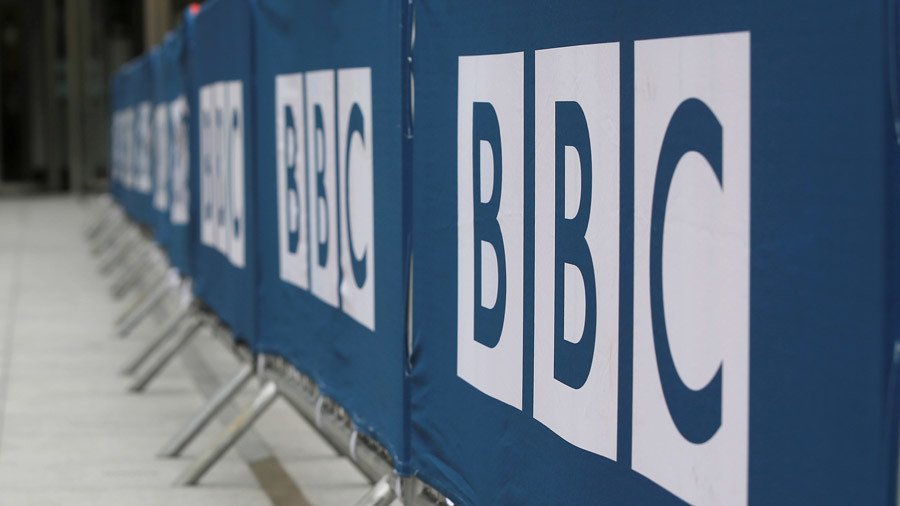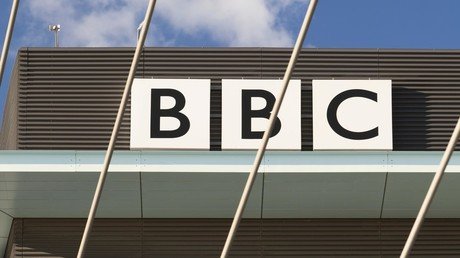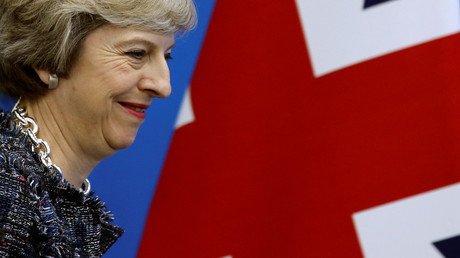‘BBC is a supporter of a foreign organization’: Tory lord hits out at 'biased' Brexit coverage

A Tory lord has accused the BBC of Brexit bias after it was revealed two-thirds of guests on its flagship shows are against leaving the bloc. Lord Tebbit branded the broadcaster a “supporter of a foreign organization.”
Analysis by the Institute for Economic Affairs (IEA) shows two-thirds of guests on BBC Question Time and Any Questions over the past two years have been against Brexit. The report describes the bias as “substantial.”
Speaking in the House of Lords, Lord Tebbit said: “Quite frankly the BBC has become a supporter of a foreign organization called the European Union.
“Could you just quietly whisper in someone’s ear: get your act in order because you do owe a duty of impartiality.”
Tebbit’s concerns were shared by other members of the House of Lords, with UKIP’s Lord Pearson suggesting Brexit Secretary David Davis’ negotiations had been “undermined” by the BBC.
“The Brexit Secretary, Mr David Davis, recently said to me that his job in Brussels is made even more difficult because every time he makes a small advance there he is promptly undermined by the BBC.”
He added that when the BBC was quizzed by a group of cross party MPs, it had not been able to identify a single program it had produced since the referendum which examined Brexit’s opportunities. “Is it acceptable that the BBC has not debated the ideas behind European integration and whether they are still valid today?” Pearson asked.
The IEA research found that of the 281 guests on Question Time from June 2016 until December last year, 60 percent were Remain supporters, 31 percent were in favor of Brexit, and nine percent were “Releavers” – now supporting Brexit.
On Any Questions, 59 percent supported Remain, 32 percent were for Brexit, and 10 percent were “Releavers” like Prime Minister Theresa May.
Mark Littlewood of the IEA said given the referendum result was 52 percent for Leave, it wasn’t representative of the country and showed “systematic bias.”
He told the Sun: “Brexit is the defining political issue of our times. The number of questions about it selected for broadcast on both programmes bears testament to this, yet low priority is still being attached to balancing its panels on the topic.
“Both Question Time and Any Questions are out of step with public opinion. A public broadcaster should not be displaying such systemic bias.”
The analysis follows another report by the think tank Civitas last week, ‘The Brussels Broadcasting Corporation?,’ which revealed that between 2005 and 2015, only 132 of the 4,275 guests asked to speak on the Today programme about the EU supported leaving.
David Keighley and Andrew Jubb, the report’s authors, said: “When opinion in favour of leaving the EU has featured, the editorial approach has – at the expense of exploring withdrawal itself – tended to heavily towards discrediting and denigrating opposition of the EU as xenophobic.”
“The overview provided here is a shocking indictment of the BBC’s failure to achieve impartiality.”
A BBC spokesperson said in a statement: “Neither Question Time nor Any Questions are ‘single issue’ programmes and panellists are expected to address a range of subjects each week.
“Aside from politicians, the rest of the panels consist of political commentators, journalists, and other public figures who represent a range of viewpoints.
“The BBC is no longer reporting on the binary choice which faced the electorate in the referendum 18 months ago.
“Question Time and Any Questions – with due impartiality – are giving audiences the opportunity to hold to account politicians from government and opposition parties for the way they are carrying out Brexit.”
Think your friends would be interested? Share this story!















